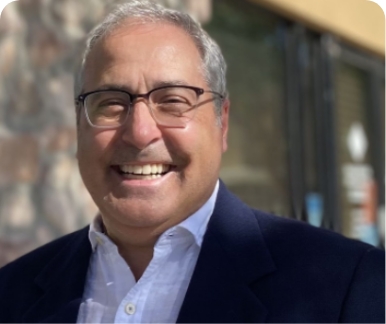
Anal Fissures
Anal discomfort, whether it be from hemorrhoids or anal fissures is a lot more common than one may think it is. Because many people are too embarrassed to share if they are suffering from anal pain, it can be easy to feel alone in an anal fissure diagnosis. At Arizona Hemorrhoid & Anorectal Center we are dedicated to helping you live a pain-free life with our discreet and effective treatments.
Information About Anal Fissures
What Are Anal Fissures?
An anal fissure is characterized as a crack or tear in the lining of your anal canal. The anal canal is made of soft moist tissue at the end of your digestive tract where your stool exists the body. They can cause pain or rectal bleeding as well as muscle spasms, especially during bowel movements. Anal fissures are most commonly caused by anal trauma such as excessive straining when trying to pass hard stool or constipation. Anal fissures can occur in individuals of any age but are quite common in infants.
Anal Fissures Signs and Symptoms
Anal fissures have similar symptoms to hemorrhoids but the causes of anal fissures vary. While hemorrhoids are caused by repeated straining, anal fissures are caused by trauma to the anal canal. Common symptoms of anal fissures include sharp pain when pooping, burning or itching, fresh blood in your stool, anal muscle spasms, and a lump under the skin near the tear. Most people with an anal fissure feel pain while pooping, and this pain lasts anywhere from seconds, to minutes, to hours afterward. This pain can be described as a burning, sharp, or tearing pain that can sometimes travel to the buttocks, upper thigh, or lower back.
How to Prevent Anal Fissures
To prevent anal fissures, it is important to maintain soft, regular bowel movements. Eating a diet rich in fiber, staying hydrated, and exercising regularly can help reduce constipation and straining during bowel movements. Healthy bathroom habits, such as avoiding prolonged sitting on the toilet and responding promptly to the urge to go, can also reduce risk. Practicing proper hygiene and using gentle, non-irritating products around the anal area further helps protect the skin and lower the chances of fissure development.
Anal Fissures Treatment Options
In the case that you are diagnosed with acute anal fissures, they will commonly go away and heal on their own. They may not need treatment to heal, but a prescription lidocaine cream can be used to help ease any discomfort. Anal fissures that require medical intervention can be treated with the following medications: nitroglycerin ointment, calcium channel blockers, Botox, or laxatives. If your anal fissures do not heal with medication or continue to come back after treatment, a medical procedure may be necessary for ensuring the fissures do not return. A procedure called an internal sphincterotomy permanently releases tension on your sphincter muscles by making small cuts. This is done while you are asleep, and after the procedure, you are able to go home.
Non-Surgical Medical Treatment
In the case that you are diagnosed with acute anal fissures, most anal fissures will go away and heal on their own. They may not need treatment to heal, but a prescription lidocaine cream can be used to help ease any discomfort. Anal fissures that require medical intervention can be treated with the following medications: nitroglycerin ointment, calcium channel blockers, Botox, or laxatives.
Surgical Treatment
If your anal fissures do not heal with medication or continue to come back after treatment, a surgical treatment may be necessary for ensuring the fissures do not return. A procedure called an internal sphincterotomy permanently releases tension on your anal sphincter muscles by making small cuts in the internal anal sphincter. This is done while you are asleep, and after the procedure, you are able to go home.
What to Expect After Anal Fissures Treatment
Patients with a chronic anal fissure may require long-term care from experienced colon and rectal surgeons who specialize in colon and rectal surgery. These experts understand how the anal sphincter muscle functions and can recommend the best combination of non-invasive and surgical approaches. In many cases, steps can be taken to prevent anal fissures from recurring, such as maintaining good bowel habits, using stool softeners, and avoiding straining. For patients with chronic fissures, ongoing follow-up ensures that symptoms are addressed and quality of life is restored.
Frequently Asked Questions About Anal Fissures
What is an anal fissure?
What are the symptoms of an anal fissure?
How is an anal fissure treated?
Can anal fissures be prevented?
When should I see a doctor for an anal fissure?
Our Hemorrhoid Experts
Board Certified Surgeons
Our colorectal experts and experienced surgeons are dedicated to providing outstanding colorectal care over multiple issues within Colon and Rectal Health. We are proud to offer full treatments of all grades of hemorrhoids and anorectal conditions to meet the needs of each of our patients.

Aalok Sahai, MD
Board Certified Colorectal Surgeon

Paul Tender, MD
Board Certified Colorectal Surgeon

Rohit Sahai, MD
General Surgeon & Surgical Oncologist
Schedule a Consultation
If you are interested in learning more about our anal fissure treatments, please reach out to Arizona Hemorrhoid & Anorectal Center at Sonoran Surgical in San Tan Valley, AZ, by calling us at (480) 646-8440. To schedule a consultation, you can head to our website to fill out an online contact form.

